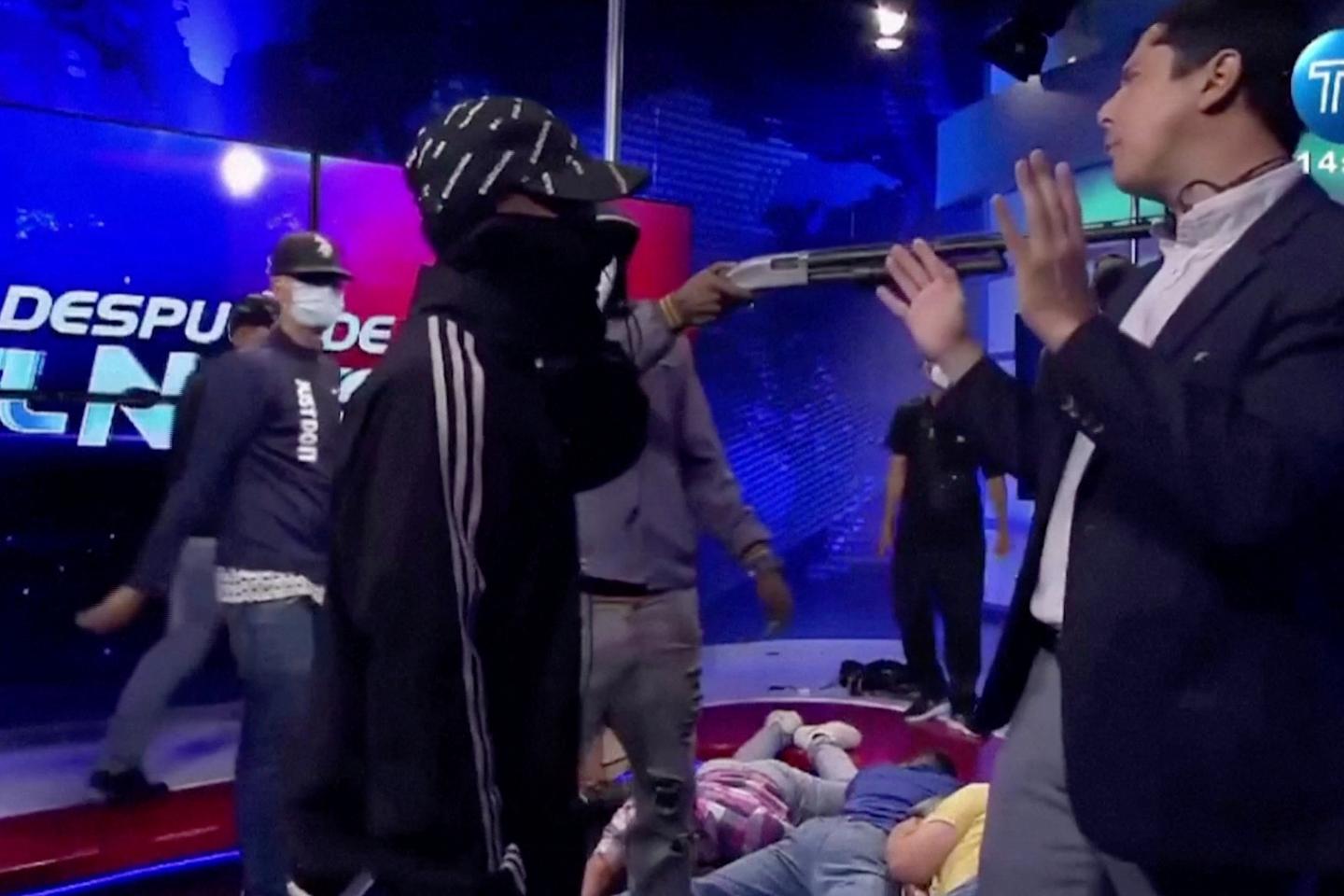


Is Ecuador on the verge of becoming a failed state? This question has been raised more than ever, since the wave of violence that followed the prison break revealed on January 7 in which crime lord Adolfo Macias, alias "Fito," escaped from the high-security detention center where he was serving a 34-year prison sentence. Macias was suspected of having ordered the August 9, 2023, assassination of a presidential candidate, Fernando Villavicencio, who had denounced corruption and the growing influence of the drug cartels. This execution was already an alarming sign of Ecuador's downward slide.
Faced with a wave of prison riots, a spectacular hostage crisis live on state television, and the murder and kidnapping of members of the security forces, President Daniel Noboa declared on January 9 that the country was facing "internal armed conflict." He has ordered the "neutralization" of criminal groups, but does he have the means to do so?
Ecuador, which had long been a haven of peace in a troubled region, has fallen prey to organized crime due to the trade of cocaine, produced in neighboring countries, having been redirected to its Pacific ports. However, the rise of local gangs; the incursion of Mexican cartels who have brought their deadly wars for control of this market to Ecuador; and the arrival of the Albanian mafia have also been facilitated by a series of disastrous initiatives for which Ecuadorians are now paying the price.
From President Rafael Correa's (2007-2017) decision to put Ecuador's ports up for concession, to that of his successor, Lenin Moreno (2017-2021), to abolish the Justice Ministry and to entrust the prison system – the site of more than 400 murders over the past three years – to an agency that quickly lost control of it: Everything seems to have been unwittingly done to facilitate the entrenchment of crime. Crime has also benefited from stubborn economic hardship, accentuated by the Covid-19 pandemic and by policies sharply reducing social spending, against a backdrop of abysmal debt.
Little time to prove himself
The country's political instability has so far hampered the development of a response, which could only produce results in the long term. Moreno's successor, Guillermo Lasso, was thus caught up in a conflict with Parliament, which had initiated impeachment proceedings against him for corruption. This tension led to early elections in 2023.
The youngest president in Ecuador's history, Noboa, who comes from a wealthy family, has very little time to prove himself. After spending just two years on the benches of the National Assembly, he was only elected to complete his predecessor's four-year term, which ends in 2025, and he does not have a majority in Parliament.
Ecuador's fragility underlines the unrealistic nature of strictly national responses to an enemy that knows no borders. A prolonged destabilization of the country would be catastrophic for its immediate neighbors, as well as for much of Latin America. Ecuador needs security assistance on a continental scale to respond to what is, by far, its citizens' main concern. The situation is urgent.
